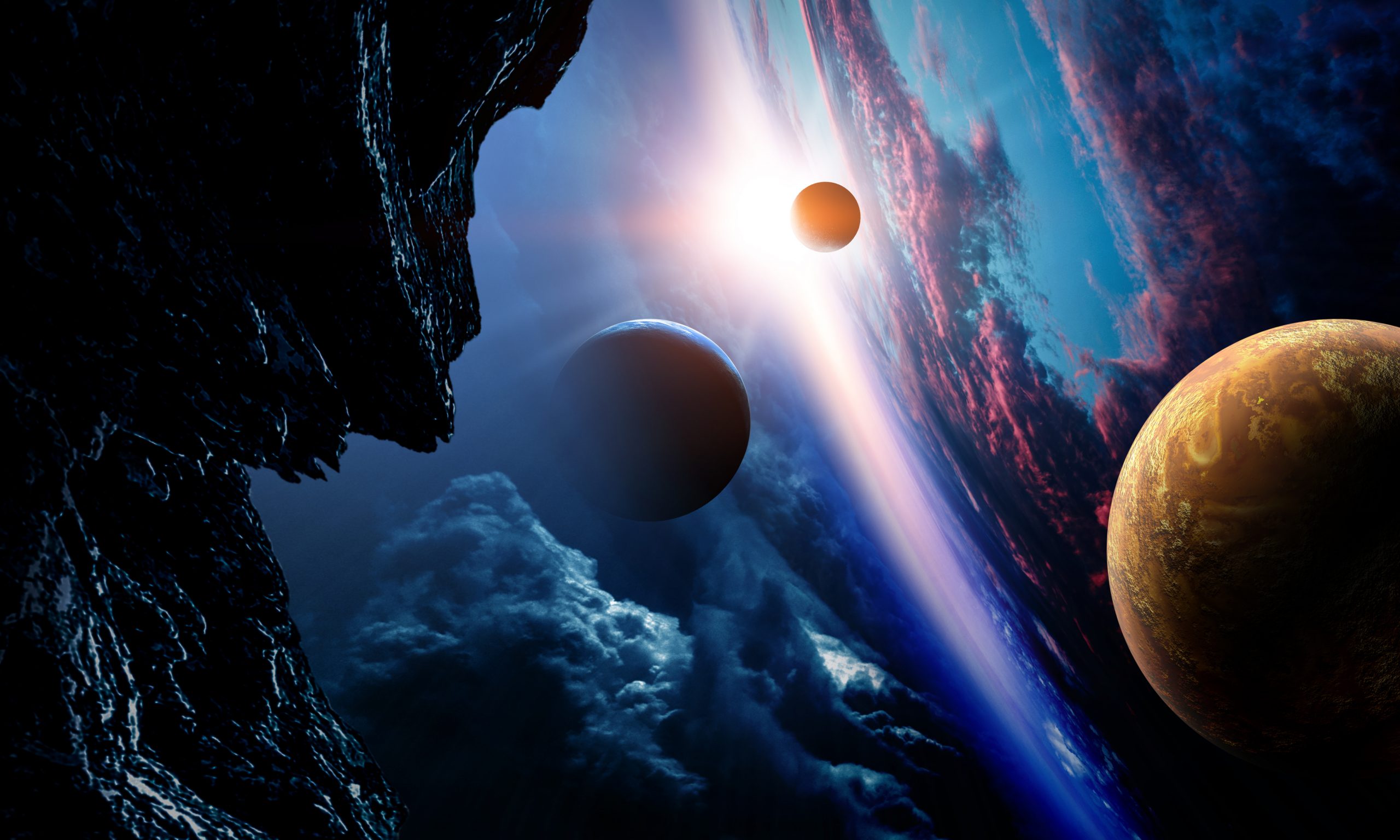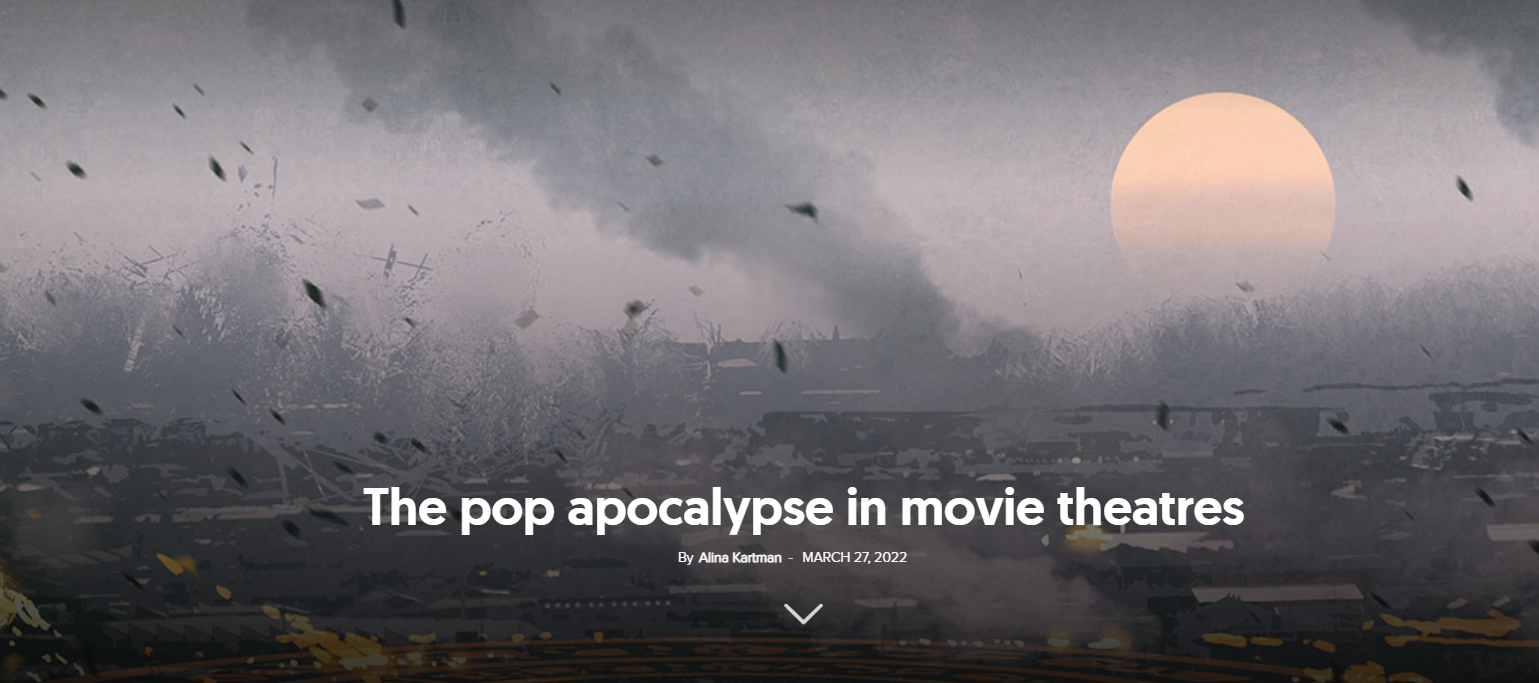Out of all the genres of storytelling that we see in the media we consume, science fiction holds a special place in my heart. While some may pine for the comfort of romance, the tension of a modern-day thriller or the stimulation of a well-crafted fantasy world, I’ve always been drawn to science fiction’s ability to create a rich canvas out of imagined futures.
While sci-fi is not unique in this regard—many note the ways fantasy can similarly imagine worlds both foreign and familiar—there is something about the ways that our contemporary struggles can be replicated through the metaphors and conflicts in science fiction which I find extremely powerful.
One of the best-known examples of this is the reboot of the science fiction classic Battlestar Galactica. The show first aired in 2003, having gone into production soon after the 9/11 terror attacks in the United States, and was immediately praised for its relevance and ability to provide timely commentary on the state of the world. Throughout four seasons and a variety of specials, the show was filled with both political and religious themes and consistently found new ways to probe and question what drives us to view those different to us as “others” or our enemy. It slowly broke down a seemingly black and white conflict into something far more complex—and attempted to highlight the importance of empathy and embracing the unknown. This is not a story focused on time travel or exploring alien planets or a strange land like Star Wars or the works of Arthur C. Clarke—it is much more interested in examining the conflict between groups and their differing philosophies or religious ideas.
It’s the mix of interesting political commentary, religious and philosophical introspection and compelling character work (alongside a phenomenal soundtrack) that puts Battlestar in my top ten shows of all time—something a lockdown rewatch confirmed (even if some parts have aged poorly). But Battlestar is far from the only science fiction show to reach these heights. In fact, a new contender has emerged in recent years to compete for its crown—one which is currently airing its final season.
The Expanse
The Expanse is a complex series. Set in our solar system hundreds of years into the future, the show is focused on the ongoing tensions in a three-way conflict. On one side is the political power of Earth, the most habitable place in the system and the cradle from which humanity has sprung. On another is the power of the Martian civilisation—humans colonising and terraforming the planet, and who have the strongest military in the system. Finally, there are the Belters, people born in the low gravity colonies situated in the asteroid belt and beyond and are unable to live on Earth, who are treated like an underclass and are reliant on the other powers to provide resources necessary for their survival.
These powers are constantly threatening to go to war, and when a mining ship in the belt is destroyed by an unknown assailant, it kicks off a chain reaction of events which threatens to turn the currently cold war extremely hot. Oh, and there’s also some potentially extra-terrestrial science involved somehow which could spell doom beyond anything that petty human squabbles could compare to.
Unlike Battlestar, which could always condense the complexities of its plot down to a few simple sentences in its intro even as the mythology of the show spiraled into more complex conflicts, The Expanse is a show unafraid to spend episodes fleshing out the nuances of its world—even if those nuances may be disorienting at first.
But while they initially may be confusing, these complexities are the show’s greatest strength—they represent the ways in which the show is able to reflect the multifaceted nature of life and society in the present day. While often compared to shows like Battlestar, there is another series with interesting parallels: The Expanse is, in many ways, the opposite of Star Trek.
Star Trek is an example of a utopian narrative, where humanity and its alien compatriots have moved past many of the societal issues we face today. Poverty, scarcity, and more are all things of the past. In contrast, The Expanse places many of the present-day issues in a futuristic context. As many reviewers have pointed out, this is one of the central parts of the show’s conceit: “humans might leave Earth behind, but we’re taking our divisions and problems with us.”
This is something expanded upon by the original book’s authors. Speaking with Polygon about the recently released final book, Leviathan Falls, authors Daniel Abraham and Ty Franck (who collectively write as James S. A. Corey) note that an important part of the series “was making the argument that history is prophecy, that humans don’t actually change much as an organism. The stuff we were doing in Rome, we’re doing now.”
More than the engaging action or twists and turns of the narrative, this is what I think is key to the success of the series. The authors and those producing the show understand something key about the nature of humanity: we are a fallen, flawed people… but that need not define us.
The problem and the solution
See, human nature is presented in The Expanse as both the problem and the solution in many of the scenarios that its main characters encounter. Behind many of the mysteries and conflicts in the show, both human and alien, lies the recognisable fingers of greed, lust for power, selfishness and hatred. This is contrasted with the fact that the solution to the problems encountered is very rarely as simple as “shoot first, ask questions later”. Exercising power does not solve the problems in this world—instead it is often mutual co-operation and understanding that can lead to better outcomes for all.
And lest you think this is an accident, the creators are clear about this being their intention. Discussing the currently airing final season of the show (which loosely adapts Babylon’s Ashes, the sixth book out of nine in the series), Franck stated the following: “A big part of what season six is all about is humanity has to pull together to solve all these problems. If we don’t understand why these people care about each other, we won’t understand why they’re pulling together against these incredible odds.”
As a Christian, the philosophy undergirding the show resonates with me. While some might assume that the focus on humanity working together to solve their problems without the intervention of higher powers is in line with a more secular or atheistic philosophy, it’s the tensions that the series depicts laying at the heart of human nature that feel in line with the spiritual theology of Christianity.
To be a Christian is to believe that humanity is caught in a conflict between our two natures—the flawed, sinful nature that we currently occupy; and the better, perfect nature that we were intended to be. Part of this faith is accepting—like the authors state—that while we are trapped in a cycle which we cannot break on our own, we can take steps towards a better nature. All we need to do to accomplish this is follow Jesus Christ’s example, who preached compassion, mercy and love during his time on earth.
Perhaps the best example of this is a character from the third season of the show (based on the third book, Abbadon’s Gate), Anna Volovodov. Anna is a pastor whose journey intersects with some of the series’ main characters due to their mutual mission to explore extra-terrestrial technology. Confronted with the possibility that humans are not the only sentient beings in the universe, Anna does not lose faith, but sticks to the key principles that she believes in because of her faith. In the end, her message of empathy and mutual co-operation plays a pivotal role in preventing a potentially fatal catastrophe—a message which is echoed in the scriptures she believes in. “Finally, all of you, have unity of mind, sympathy, brotherly love, a tender heart, and a humble mind” (1 Peter 3:8).
Of course, Christianity is but one of many different religions or philosophies examined in the series. A key plot point is the growing power of the Mormon church in this imagined future, and other characters believe in many other theologies or philosophies. Part of the show’s success is its ability to engage with a multitude of issues in a compelling and respectful way. But at least for me, when I see the importance the show places on empathy, I am reminded of the ways faith can lead us to the same conclusion.
Ryan Stanton is a PhD student studying Media and Communications at the University of Sydney, Australia. Don’t ask him to choose between Battlestar and The Expanse. It’d be like asking him to choose a favorite child; he loves them both very much. A version of this article first appeared on the Signs of the Times Australia website and is republished with permission.




















